Keywords: Brisbane
There are more than 200 results, only the first 200 are displayed here.
-
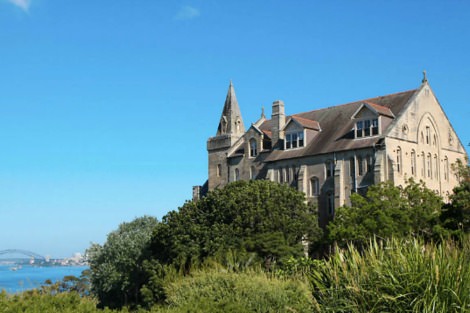
EDUCATION
- Michael Furtado
- 04 November 2016
12 Comments
Amid the furore surrounding Minister Birmingham's disclosure of figures showing massive discrepancies in public funding between some independent schools and low-SES schools, some facts need scrutinising. Systemic Catholic schools draw for their enrolment from lower-SES postcodes than independent schools. Postcodes being an indelible predictor of the educational chances of Australians, balancing systemic school funding against that of independent schools is politically and ethically problematic.
READ MORE 
-

AUSTRALIA
- Frank Brennan
- 13 October 2016
2 Comments
With idealism and pragmatism, I invite you criminal lawyers in the next 30 years to imagine and enact a better criminal justice system which alleviates rather than exacerbates the devastating effects of colonisation and marginalisation on Indigenous Peoples, and most particularly their children. An intelligently designed criminal justice system must help secure the foothold of Indigenous children in both the Market and the Dreaming.
READ MORE
-

ARTS AND CULTURE
- Tim Kroenert
- 05 October 2016
1 Comment
At the opening of the Environmental Film Festival Australia in Melbourne last week, festival patron and former Greens senator Bob Brown highlighted the movement against oil drilling in the Great Australian Bight. He painted a picture wherein a major spill in the region could lead to an environmental disaster stretching as far from the site as the NSW coast. His words make the release of Deepwater Horizon, about the disaster that led to the 2010 BP oil spill in the Gulf of Mexico, even more timely.
READ MORE 
-
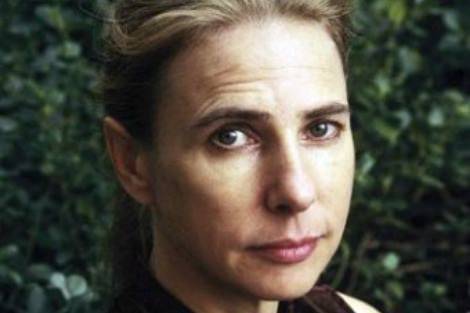
INTERNATIONAL
- Esther Anatolitis
- 04 October 2016
10 Comments
Who owns a cultural object? Who has the right to determine cultural values? And how can public institutions exercise cultural responsibility? It's a timely set of questions as we consider the implications of the National Gallery of Australia's return of ancient Indian sculptures, the British Museum's refusal to return Indigenous objects, or Lionel Shriver's rejection of minority cultural identities. Each of these unleashes complex, painful consequences that can undermine cultural value or cultural safety.
READ MORE 
-
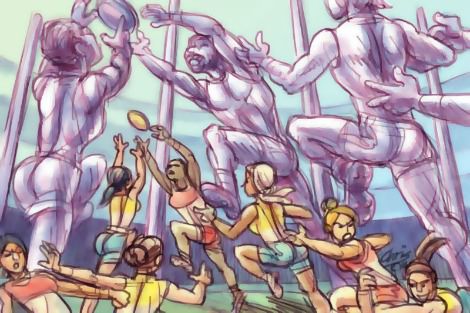
AUSTRALIA
- Erin Riley
- 05 September 2016
4 Comments
The lower wage for players in the AFL women's league has serious equity implications, beyond the clear discrepancy between men's and women's wages. In order to train three times a week, many players will be required to relocate closer to their clubs. This puts their day jobs in jeopardy, meaning only those who can afford to change jobs or take time off can afford to play. This has the potential to seriously skew the playing group towards those who are from higher socio-economic status.
READ MORE 
-
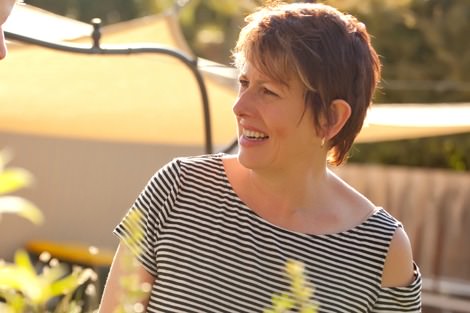
AUSTRALIA
'We have now got a world wide refugee problem. We don't have one here but we do have one world wide. It is now time to start having a rational debate about what we do with these people as opposed to playing the race card.' Interview with Anna Burke, who has represented the seat of Chisholm in the House of Representatives for the ALP since 1998. Burke is the former Speaker of the House (2012–2013), and has been a consistent advocate for asylum seekers. She will retire at the next election.
READ MORE 
-
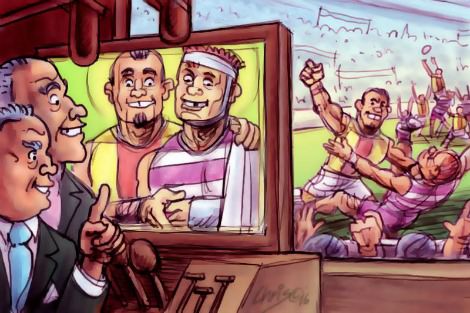
MEDIA
- Garry Westmore
- 02 May 2016
4 Comments
Arguably, as a society, Australia's tolerance for violence is waning, and both the AFL and the NRL have been proactive in diminishing the prevalence of deliberate and reckless violence that might endanger players' safety. Unfortunately, despite the AFL's desire to stamp out the more dangerous incidents, many televised football commentators are hindering the cause by making excuses for players, playing down the severity of their actions, and failing to condemn them.
READ MORE 
-
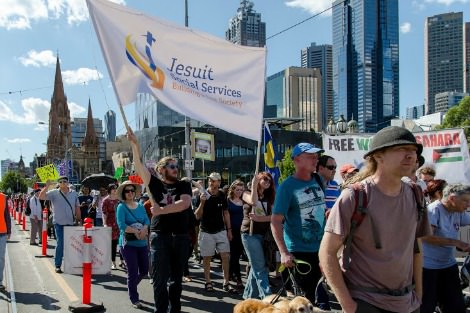
AUSTRALIA
- Moira Rayner
- 22 March 2016
18 Comments
When I received my invitation to 'lead' the Palm Sunday Walk for Refugees my first response was to ignore it. This was partly ego and partly disillusionment. It's true that in Melbourne at least 6000 people walked or struggled or strode along Spencer Street. But I no longer believe marches for huge national issues have any effect on local powerbrokers. I believe as Saul Alinsky said that the most powerful force for change is local activism on local issues and generational organisation from the grass roots up.
READ MORE 
-
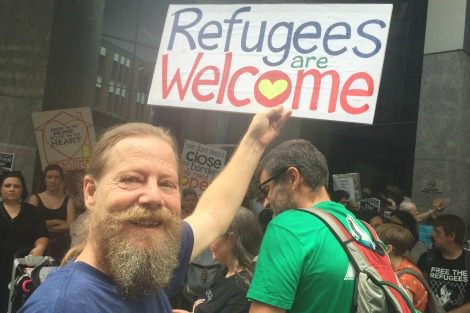
AUSTRALIA
- Andrew Hamilton
- 18 February 2016
18 Comments
It is common for people to break the law. People fail to move on when instructed by police, evade tax, drive too fast, keep silent about abuse, trespass on military facilities, and drive when drunk. Many people assert that it is never right to break a law duly enacted by the government. From this principle it follows that anyone offering sanctuary to people who seek protection in Australia is acting wrongly. This blanket condemnation of law breaking runs against our inherited moral tradition.
READ MORE 
-
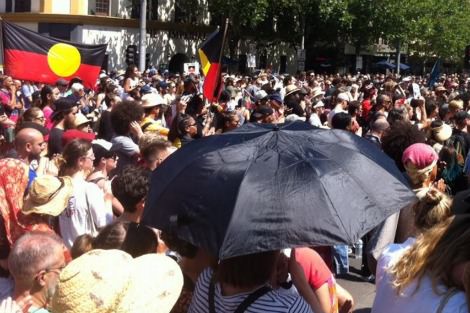
AUSTRALIA
- Celeste Liddle
- 01 February 2016
27 Comments
On the day of the Invasion Day rally in Melbourne, I was abused for wearing a pro-Aboriginal rights t-shirt. I wasn't shocked. Indeed, I even expected it. It is not the first time I have been abused as an Indigenous activist on Australia Day. What did shock me were the media reports on the rally. When I read that the densely packed, energetic, noisy crowd consisted of only 150 people, I was surprised, to say the least. I and other seasoned protesters estimated the crowd at around 3-5000.
READ MORE 
-
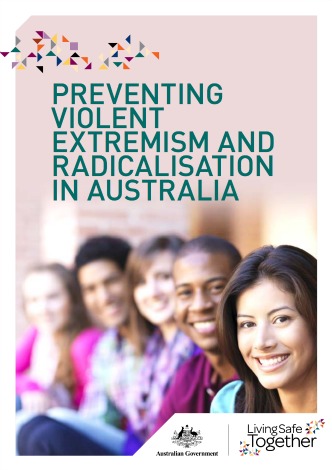
AUSTRALIA
- Andrew Zammit
- 11 January 2016
2 Comments
In September Sydney's Daily Telegraph ran the headline 'Schoolyard Terror Blitz', reporting that 'schoolteachers will be given access to radicalisation information awareness kits explaining how to identify students at risk and what they should do to intervene as concerns grow about the rise of teen terrorists'. As the government prepares to address the involvement of schoolchildren in violent extremism, a controversial program in the UK shows a dangerous path that Australia must avoid.
READ MORE 
-

AUSTRALIA
- Frank Brennan
- 10 December 2015
I first met this Tony on my regular visits here to Darwin when he was working at the North Australian Aboriginal Legal Aid Service and then when he set up the mediation services under the auspices of Anglicare. In later years I knew him when he was your Anti-Discrimination Commissioner. He was a quiet, considered, gentle, strong and principled man. On Human Rights Day, it is only fitting that I honour Tony by offering some reflections on the architecture for human rights in Australia, on the contemporary human rights controversies, and on the way forward for better protection of the human rights of Aborigines and asylum seekers, two marginalised groups who had a special claim on Tony's sympathies.
READ MORE